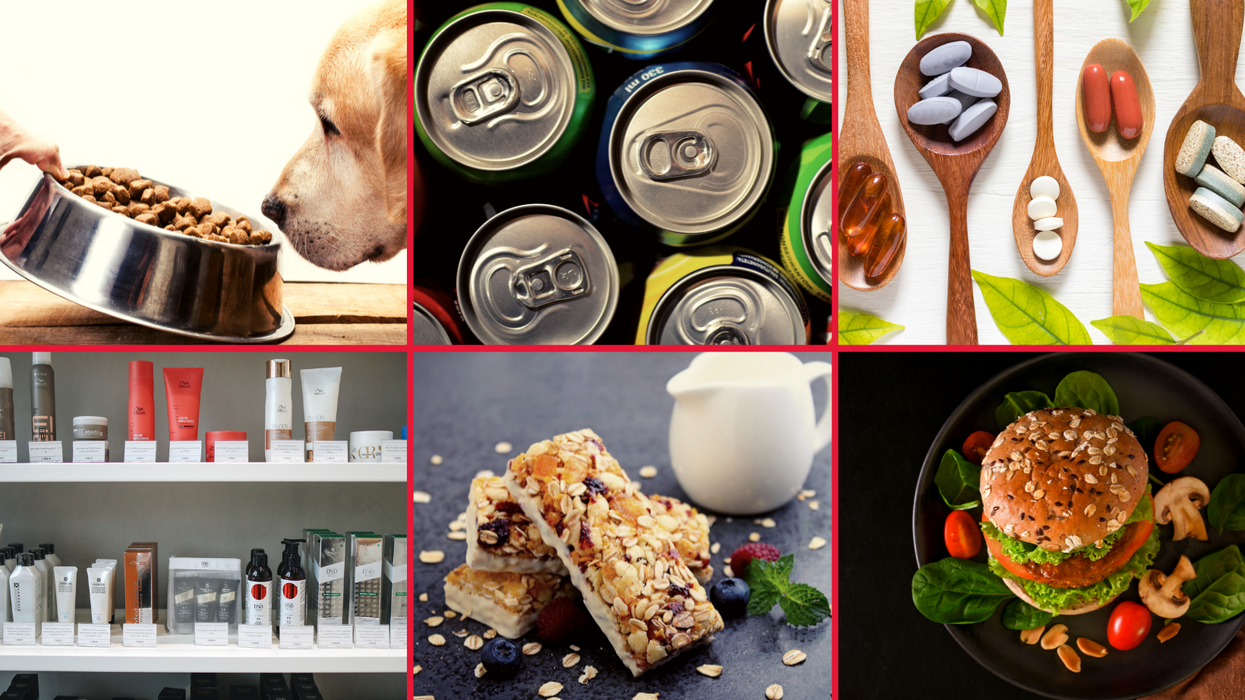Brand News
15 September 2022
CPG accelerator SKU plans 3 tracks for 2023
Applications are open for up-and-coming food & beverage, women & BIPOC-owned and petcare brands.

SKU has helped make Austin a CPG hub. (Courtesy photo)
Applications are open for up-and-coming food & beverage, women & BIPOC-owned and petcare brands.

SKU has helped make Austin a CPG hub. (Courtesy photo)
SKU, an accelerator for consumer packaged goods, is planning to run three cohorts to support up-and-coming brands in 2023.
On Wednesday, the accelerator announced that it has opened applications for 2023, and shared that its programming for the year will include three tracks that reflect growing categories in CPG. Each track will be based in Austin, which has become a hub for CPG brands right alongside the growth of SKU.
SKU’s 2023 tracks are as follows (Exact dates will be announced later):
Austin-based SKU was founded in 2011 by lawyer Shari Wynne Ressler and serial entrepreneur Clayton Christopher, who is the founder of Sweet Leaf Tea and Deep Eddy Vodka. The accelerator has worked with more than 100 brands, including EPIC Provisions, Siete, DUDE Wipes and Seaweed Bath Co.
“SKU is on a mission to connect founders to CPG resources so they can create the household brands of tomorrow. Our 2023 track schedule is a shining example of that,” says Emily Kealey, Managing Director of SKU, in a statement. “Through our mentors, partners and sponsors, our unique ecosystem gives us the opportunity to accelerate these founders so they can make lasting change in the CPG industry.”
During the accelerator, brand leaders take part in a curriculum that covers the areas of growing a brand, including mission and vision, branding, channel strategy, supply chain and innovation.
The accelerator also provides support by connecting founders to a community of mentors that include successful CPG leaders and founders, subject-matter experts and investors. Mentors include the inventor of the pumpkin scone, the director of emerging brands for 7-Eleven and the founder of Vital Farms.
Each founder is surrounded by a handpicked team of mentors who are focused on helping them to scale their brand, and serve as guides through the program. SKU said it is currently scheduling interviews with leaders that are interested in becoming mentors.
“SKU accelerated us in all aspects of our business,” said Laurel Orley, a SKU alum who is cofounder and Crunch Executive Officer of Daily Crunch Snacks. “Looking back at our brand positioning, it’s night and day compared to where we were before after going through SKU. There was so much about our brand in the market that I wasn’t aware of and now I have a clear sense of how to move forward and succeed.”
Founders can find an application here.
Campbell Soup Company CEO Mark Clouse offered thoughts on messaging amid inflationary shifts in consumer behavior.
After months of elevated inflation and interest rate hikes that have the potential to cool demand, consumers are showing more signs of shifting behavior.
It’s showing up in retail sales data, but there’s also evidence in the observations of the brands responsible for grocery store staples.
The latest example came this week from Campbell Soup Company. CEO Mark Clouse told analysts that the consumer continues to be “resilient” despite continued price increases on food, but found that “consumers are beginning to feel that pressure” as time goes on.
This shows up in the categories they are buying. Overall, Clouse said Campbell sees a shift toward shelf-stable items, and away from more expensive prepared foods.
There is also change in when they make purchases. People are buying more at the beginning of the month. That’s because they are stretching paychecks as long as possible.
These shifts change how the company is communicating with consumers.
Clouse said the changes in behavior are an opportunity to “focus on value within our messaging without necessarily having to chase pricing all the way down.”
“No question that it's important that we protect affordability and that we make that relevant in the categories that we're in," Clouse said. "But I also think there's a lot of ways to frame value in different ways, right?”
A meal cooked with condensed soup may be cheaper than picking up a frozen item or ordering out. Consumers just need a reminder. Even within Campbell’s own portfolio, the company can elevate brands that have more value now, even if they may not always get the limelight.
The open question is whether the shift in behavior will begin to show up in the results of the companies that have raised prices. Campbell’s overall net sales grew 5% for the quarter ended April 30, while gross profit margins held steady around 30%. But the category-level results were more uneven. U.S. soup sales declined 11%, though the company said that was owed to comparisons with the quarter when supply chains reopened a year ago and expressed confidence that the category is seeing a longer-term resurgence as more people cook at home following the pandemic. Snacks, which includes Goldfish and Pepperidge Farm, were up 12% And while net sales increased overall, the amount of products people are buying is declining. Volumes were down 7%.
These are trends happening across the grocery store. Campbell is continuing to compete. It is leading with iconic brands, and a host of different ways to consume them. It is following that up with innovation that makes the products stand out. Then, it is driving home messaging that shows consumers how to fit the products into their lives, and even their tightening spending plans.
Campbell Soup is more than 150 years old, and has seen plenty of difficult economic environments. It is also a different business today, and will continue to evolve. At the end of the day, continued execution is what’s required.
“If it's good food, people are going to buy it, especially if it's a great value,” Clouse said.